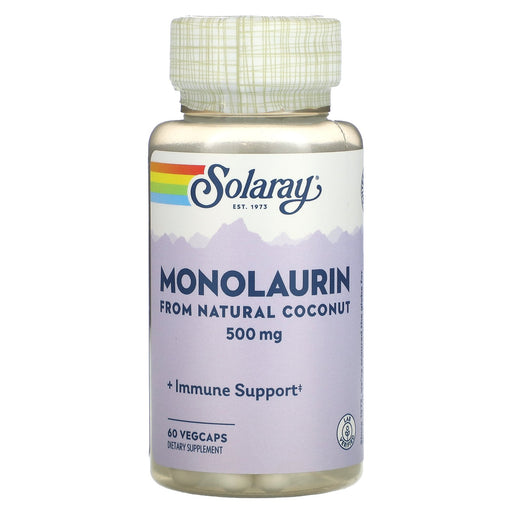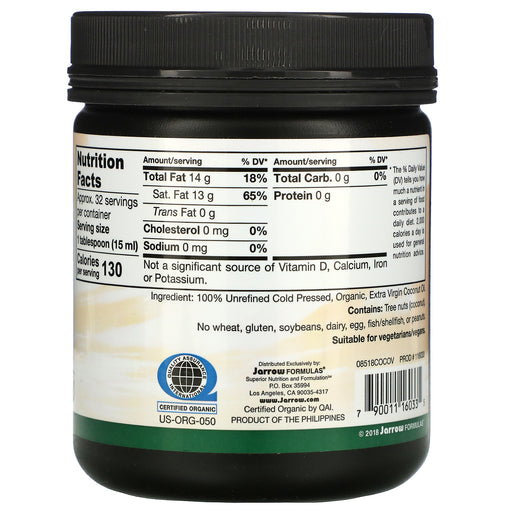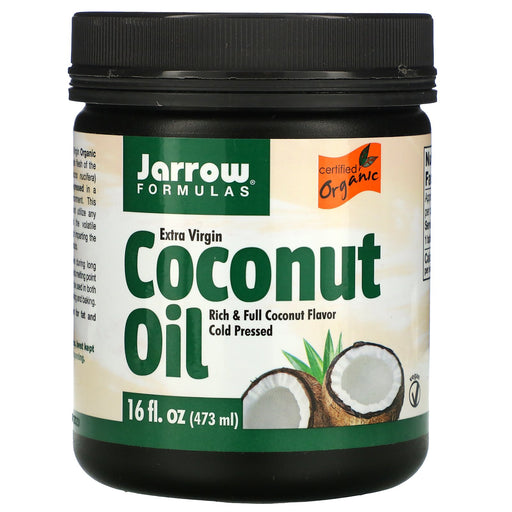
Unleashing the Potential of Coconut for Optimal Health and Wellness
Coconuts have long been valued for their versatility and nutritional benefits, and modern science continues to uncover the many ways in which this tropical fruit can support overall health and well-being. From coconut oil and coconut water to coconut flour and coconut milk, coconut-derived products offer a wide range of nutrients and beneficial compounds that can be easily incorporated into your daily routine.
The Nutritional Profile of Coconut
Coconuts are a rich source of various nutrients and beneficial compounds, including:
- Medium-Chain Triglycerides (MCTs): Coconut oil is one of the best natural sources of MCTs, particularly lauric acid, which are easily digested and quickly converted into energy by the body.
- Fiber: Coconut meat and coconut flour are excellent sources of dietary fiber, which can support digestive health, promote feelings of fullness, and help maintain healthy blood sugar levels.
- Electrolytes: Coconut water is a natural source of electrolytes, such as potassium, magnesium, and sodium, which are essential for hydration, muscle function, and overall cellular health.
- Vitamins and Minerals: Coconuts contain various vitamins and minerals, including vitamin C, vitamin E, B vitamins, iron, and selenium, which contribute to overall health and well-being.
- Antioxidants: Coconuts contain antioxidants like phenolic compounds and phytosterols, which may help protect cells from damage caused by free radicals and oxidative stress.
Coconut supplements are available in various forms, such as coconut oil capsules, coconut water powder, and coconut flour, making it easy to incorporate the benefits of coconut into your health routine.
Benefits of Coconut Supplementation
Incorporating coconut supplements into your health routine may offer several potential benefits, including:
- Energy and Endurance: The MCTs in coconut oil can serve as a quick and efficient source of energy, potentially supporting physical performance and endurance during exercise.
- Brain Function Support: MCTs, particularly caprylic acid, can be converted into ketones, which can serve as an alternative energy source for the brain, potentially supporting cognitive function and memory.
- Weight Management: The fiber content in coconut meat and coconut flour may help promote feelings of fullness and support weight management when combined with a balanced diet and regular exercise.
- Digestive Health: The fiber in coconut products can help support regular bowel movements, promote the growth of beneficial gut bacteria, and maintain overall digestive health.
- Hydration and Electrolyte Balance: Coconut water supplements can help replenish electrolytes lost through sweat during exercise or hot weather, supporting proper hydration and muscle function.
Choosing the Best Coconut Supplement
When selecting a coconut supplement, it's essential to choose a high-quality product from a trusted brand. Consider the following factors:
- Supplement Form: Choose a coconut supplement that aligns with your specific health goals and preferences, such as coconut oil capsules for brain function support or coconut water powder for hydration.
- Quality and Purity: Look for supplements manufactured in GMP-certified facilities, free from contaminants and impurities, and third-party tested for purity and potency.
- Minimal Processing: Opt for coconut supplements that undergo minimal processing to preserve their natural beneficial compounds and nutrients.
- Sustainability: Consider supplements derived from sustainably sourced coconuts to support environmental and social responsibility.
- Brand Reputation: Select supplements from reputable brands with a history of producing high-quality, science-backed products and a commitment to transparency and safety.
Tips for Incorporating Coconut Supplements into Your Health Routine
To maximize the benefits of coconut supplements and support your overall health and wellness, consider the following tips:
- Choose the Right Supplement for Your Goals: Select a coconut supplement that aligns with your specific health objectives, such as coconut oil for brain function or coconut water for hydration and electrolyte balance.
- Use in Conjunction with a Balanced Diet: While coconut supplements can provide numerous health benefits, they should be used in conjunction with a balanced diet rich in whole foods, fruits, vegetables, lean proteins, and other healthy fats.
- Stay Hydrated: When using coconut water supplements, be sure to pair them with adequate water intake to maintain optimal hydration and electrolyte balance.
- Be Mindful of Calorie Intake: Some coconut supplements, like coconut oil, are calorie-dense. Be mindful of your overall calorie intake and use these supplements in moderation as part of a balanced diet.
- Consult with a Healthcare Professional: Before starting any new supplement regimen, consult with a healthcare professional, especially if you have pre-existing health conditions, allergies, or are taking medications, to ensure safety and appropriateness.
Experience the Versatility and Benefits of Coconut Supplements with Health Orchard
Unleash the potential of coconuts for your health and well-being with Health Orchard's selection of high-quality coconut supplements. From coconut oil and coconut water to coconut flour and coconut milk, our carefully curated collection offers a range of options to support your specific health goals and fit seamlessly into your daily routine.
Explore our coconut supplements and experience the natural goodness of this versatile tropical fruit for yourself. With a commitment to quality, sustainability, and your overall wellness, Health Orchard is your trusted partner in harnessing the benefits of coconuts for optimal health and vitality.
Frequently Asked Questions about Coconut Supplements
1. What are the benefits of coconut in the body?
Coconut and its derived products, such as coconut oil and coconut water, offer several potential benefits for the body:
- Boosting energy: The medium-chain triglycerides (MCTs) in coconut are easily digested and converted into energy
- Supporting weight loss: MCTs may help increase metabolism and promote fat burning
- Improving brain function: MCTs can be converted into ketones, which serve as an alternative energy source for the brain and may support cognitive health
- Enhancing immune health: Lauric acid, a major component of coconut, has antimicrobial and antiviral properties that may support the immune system
- Promoting heart health: Coconut may help raise HDL (good) cholesterol levels and reduce LDL (bad) cholesterol
- Supporting digestion: Coconut fiber can help promote regular bowel movements and maintain gut health
2. Is it good to take coconut everyday?
Incorporating coconut and its derived products into your daily diet can be beneficial, as long as you consume them in moderation. Coconut oil, for example, is high in calories and saturated fats, so it should be used in place of other cooking oils rather than in addition to them. Coconut water can be a refreshing and hydrating beverage, but be mindful of its sugar content. As with any food or supplement, it's essential to listen to your body and adjust your intake based on your individual needs and tolerances.
3. What are the 10 benefits of coconut?
10 potential benefits of coconut include:
- Boosting energy levels
- Supporting weight loss
- Improving brain function
- Enhancing immune health
- Promoting heart health
- Supporting digestion
- Moisturizing skin and hair
- Providing essential nutrients, such as fiber, vitamins, and minerals
- Reducing inflammation
- Offering versatility in cooking and baking
4. What vitamins do coconuts have?
Coconuts are a good source of several vitamins and minerals, including:
- Vitamin C: Supports immune health and collagen production
- Thiamin (Vitamin B1): Essential for energy metabolism and nerve function
- Folate (Vitamin B9): Important for red blood cell formation and fetal development
- Vitamin E: Acts as an antioxidant and supports skin and hair health
- Vitamin K: Plays a role in blood clotting and bone health
- Iron: Necessary for oxygen transport and red blood cell formation
- Magnesium: Supports muscle and nerve function, as well as energy production
- Potassium: Helps regulate fluid balance and supports heart health
5. Is coconut good for the liver?
Coconut and its derived products may offer some potential benefits for liver health:
- The medium-chain fatty acids (MCFAs) in coconut oil are easily metabolized by the liver and may help reduce liver fat accumulation
- Coconut oil's antioxidant properties may help protect the liver from oxidative stress and damage
- Some animal studies suggest that coconut water may have hepatoprotective effects, helping to prevent liver damage
However, more human research is needed to confirm these potential benefits. It is also important to consume coconut in moderation, as excessive intake of saturated fats may have negative effects on liver health in some individuals.












